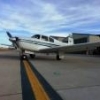Fuel Pump Usage For TO & Landings
-
Members Online
- TangoTango
- gamefreak32
- Aerodon
- Mike Simmons
- Dick Denenny
- pirate
- BrentS
- varlajo
- Pilot Guy
- Ragsf15e
- dr_caligari
- kaba
- Falcon Man
- mike_elliott
- 201Mooniac
- Marc_B
- Jetdriver
- CCAS
- Mcstealth
- Jim F
- Paul Thomas
- N201MKTurbo
- Rick Junkin
- Skyland
- dkkim73
- Sonar
- Patrick Horan
- hammdo
- mluvara
- bencpeters
- Greg Ellis
- Justin Schmidt
- IvanP


Recommended Posts
Join the conversation
You can post now and register later. If you have an account, sign in now to post with your account.